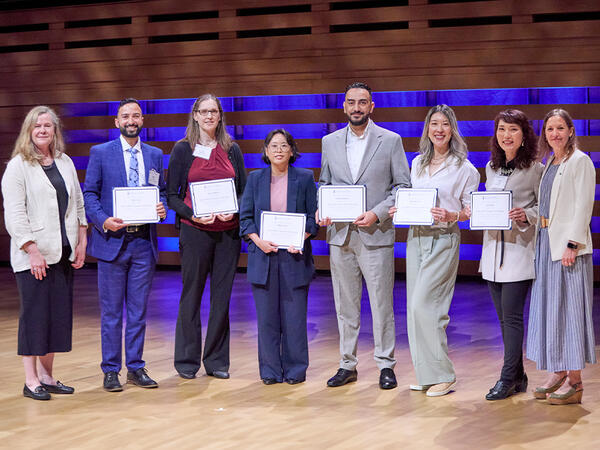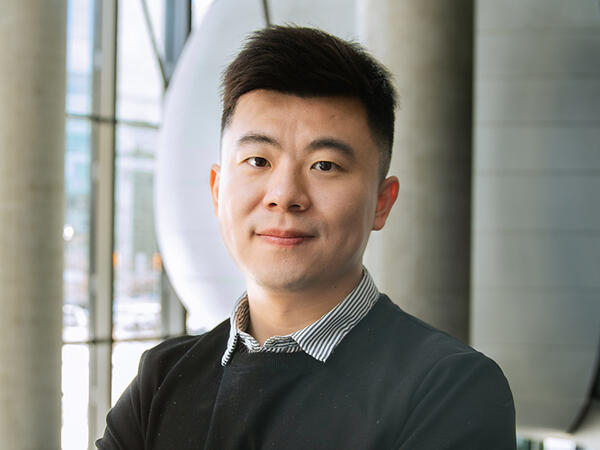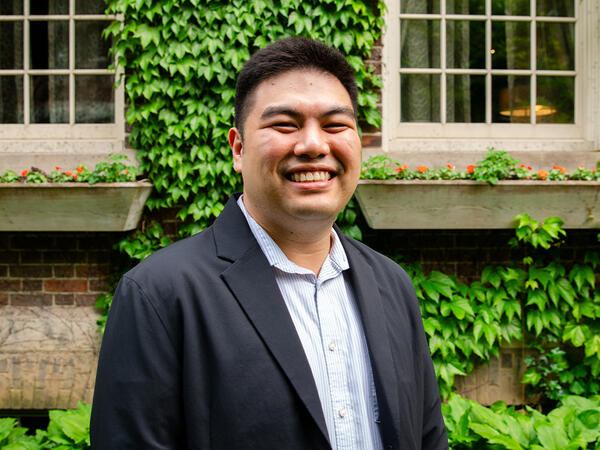What is your academic background and why is your area of research important?
Prior to joining the Department of Pharmaceutical Sciences as a Master’s student at University of Toronto, I completed my Honors BSc. in Biomedical Sciences at Toronto Metropolitan University. Currently, I am supervised by Professor Mina Tadrous, and my research focuses on using real-world data to study the impact of drug shortages on population-level drug use. Drug shortages are a growing global concern, where disruptions to drug availability negatively impact patient care and healthcare systems. However, there is limited information on how shortages affect population-level drug use and access. My research aims to address this gap by studying drug utilization trends of Canadian prescription drug shortages and develop a predictive model capable of anticipating and preventing future shortages.
What led you to your current research group?
My interest in this area stems from my interest in better understanding the real-world problems that patient populations face on a day-to-day basis. Our work focuses on leveraging readily available healthcare administrative data to generate real-world evidence that can then inform drug policy and clinical and pharmacy practice. I believe my training under Dr. Tadrous will allow me to hone my skills in the policymaking process as well as familiarize myself with communicating scientific discoveries to different stakeholders and decision makers. Lastly, I am excited about the wide scope and applicability for pharmacoepidemiology in terms of potential career pathways, from government to industry roles.
What are some of the challenges you had to overcome within your research?
Given that my undergraduate thesis focused on molecular biology, transitioning to a pharmacoepidemiology-focused thesis has been quite challenging. There are many new skills and concepts that I continue to learn throughout my thesis project. Our field of research heavily relies on study designs leveraging large datasets and statistical coding, all of which were new to me. Learning these new skills has been challenging, but the process of honing my skillset has also been rewarding, and I know the skills I learn will help me as I progress in my career.
How do you see your current research playing a role in your career?
I aspire to pursue a career focusing on drug policy, targeting drug access and pricing within the government sector. My current research project allows me to build skills around using data to create real-world evidence that can guide decisions on drug policy and understand the efforts behind policymaking. This project also engages Canadian knowledge users and policymakers, including Health Canada and Provincial Ministries of Health, which helps me better understand the governmental perspective of drug access and policy. At the same time, I am also collaborating with pharmacoepidemiologists in the U.S. as part of a multidisciplinary team. I am excited and confident that these experiences will collectively help position me to pursue and excel in a future career in drug policy.
What do you like to do when you are not working on research?
Throughout my academic journey I have consciously made efforts to take time for my hobbies and personal growth. I grew up learning South Indian classical dance, also known as Bharatanatyam, and I continue to dance as a means of keeping myself connected with the art form. I also enjoy working out, yoga, and spending time in nature. I’m a foodie at heart and enjoy trying new restaurants (but in a budget-friendly way!). I also recently joined Pharmaceutical Sciences Graduate Student Association (PSGSA) as a general member to become more involved in our lively student body. I am also a member of the GRIP committee this year, and it has been a fun and rewarding experience to help plan this event for our students and faculty.
More News
Image

Seven pharmacists recognized as APPE Preceptors of the Year
Preceptor of the Year Awards recognize excellence in teaching and mentorship.
Read More
Image

Stem Cell Network announces $33M to advance 36 regenerative medicine research projects and clinical trials
Assistant Professor Bowen Li has received funding to advance gene therapy research with a focus on cystic fibrosis and cardiac regeneration.
Read More
Image

PharmD for Pharmacists grad gains key clinical skills to expand career
Albert Villaluna complemented industry experience with clinical experiential courses that showed breadth of pharmacy practice in Canada.
Read More
